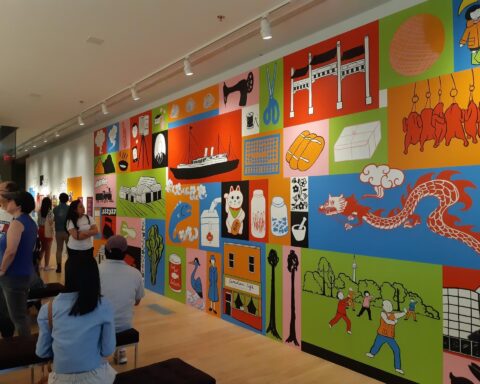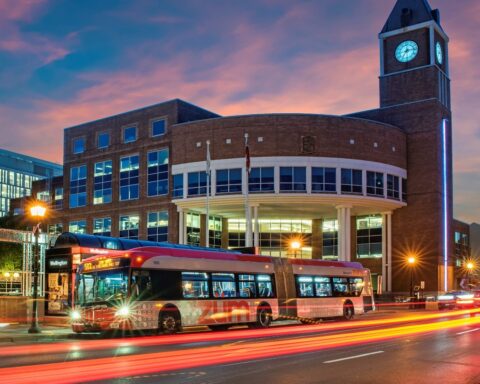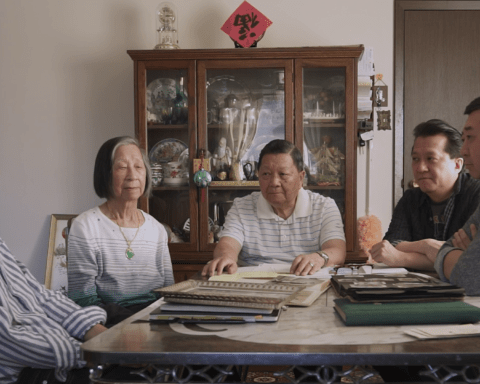 Political discourse often speaks to the social conservatism of immigrant groups. However, the results of the recent federal elections show that we need a better understanding of how immigrant groups are mobilized and integrated into formal spheres of Canadian politics. This two-part series focuses on the Chinese community in metropolitan areas of Canada. Part I explores the role of churches in helping to integrate Chinese Canadians and how that might lead to conservative politics.
Political discourse often speaks to the social conservatism of immigrant groups. However, the results of the recent federal elections show that we need a better understanding of how immigrant groups are mobilized and integrated into formal spheres of Canadian politics. This two-part series focuses on the Chinese community in metropolitan areas of Canada. Part I explores the role of churches in helping to integrate Chinese Canadians and how that might lead to conservative politics.
Despite the sweeping defeat of the Conservatives by Trudeau’s Liberals throughout the suburban areas of Vancouver and Toronto (the very same ridings that enabled a Conservative victory in 2008 and 2011) in last week’s election, it would be a mistake to think that the Conservative influence in these communities has come to an end.
When the Conservative party took out ads in certain ethnic Chinese media suggesting the Liberal party would legalize brothels, open drug injection sites and make marijuana more accessible to children, it was a targeted and informed choice. Spend some time in any of the Chinese Christian megachurches in Richmond, Vancouver or Scarborough, Toronto and you will often find the very same issues raised.
In fact, if we look at regions where the Conservatives did retain seats in metropolitan Vancouver and Toronto (such as Richmond Centre, South Surrey-White Rock and Markham-Unionville) we do find they are areas with large numbers of Chinese Christians.
The important role of Chinese churches
To understand the strong support for Conservative politics and the party amongst the Chinese community in metropolitan Canada, we need to understand Chinese Christian churches.
While the first Chinese Christian church in Canada can be dated to the early 1900s, it was with the wave of Hong Kong immigrants in the 1970-80s that we began to see the rapid growth of Chinese Christian churches in metropolitan areas such as Vancouver and Toronto.
It would be a mistake to think that the Conservative influence in these communities has come to an end.
The demographics (middle class, professionals) and political dispositions of this Hong Kong immigrant flow inevitably influenced the politics that are reproduced within these churches.
At the same time, Chinese Christian churches have and continue to be an institution of unparalleled importance within the Chinese diaspora. These churches are vital hubs of community that help facilitate the integration of new immigrants. They also offer social services to seniors, new immigrants and international students that are increasingly important in the context of recent cutbacks to immigrant and community services.
Conservative tendencies
The recent anti-sex education movement in Ontario is supported by many churches and the Chinese Christian community. These sentiments are richly detailed in this portrait of one of the leading Chinese organizers.
In this and other ways, there exists a connection between Chinese Christian churches as institutions that integrate newcomers to Canada and as institutions where political-social conservatism is reproduced and concentrated.
Of course, the Chinese Christian community is not a monolith; it’s a complex, changing group with its own internal differences and disagreements. What is highlighted by the Ontario sex-ed debacle and the Chinese Christian opposition is that most vocal and politically active element of this community does tend towards conservatism.
Of course, the Chinese Christian community is not a monolith.
It should not be surprising that this Christian conservatism has found an easy affinity with the Conservative party, who has tried to leverage the grassroots strength of the Chinese Christian churches for electoral gain by running candidates with church affiliations.
To acknowledge all of this, however, is not to find in Chinese immigrants some innate, unchanging ‘conservatism’, but to illustrate the class biases of the immigration system and how immigrants during the process of immigration and through institutions like churches have become mobilized to become ‘conservative’ in the context of life in Canada.
Part Two of this series turns to a discussion of the new Chinese working class, how contemporary conditions are ripe for the development of a Chinese left and what this means for the Canadian left.
Justin Kong studies sociology and is engaged with community and labour groups in Toronto.
Journalist Ranjit Bhaskar mentored the writer of this article, through the New Canadian Media mentorship program.
Justin Kong
Ranjit is a Toronto-based writer with interest in Canadian civic affairs, immigration, the environment and motoring. Maytree and Al Jazzera English alumnus.





